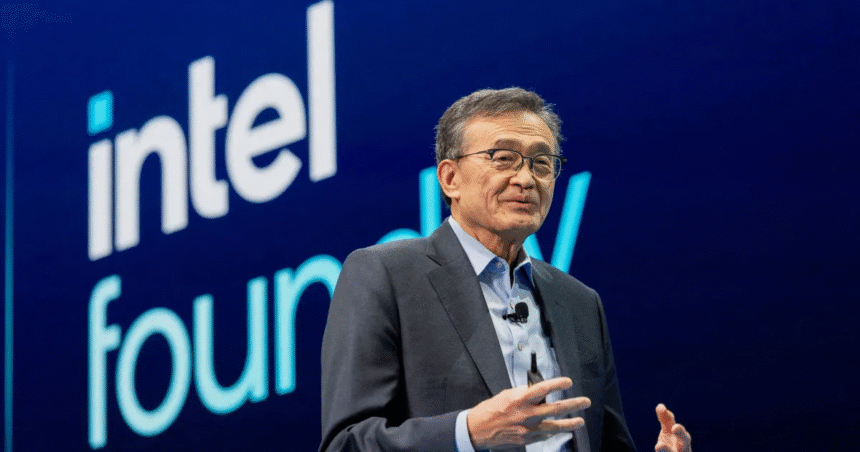In a dramatic turn for one of America’s most iconic tech companies, former U.S. President Donald Trump has called for the Intel CEO to resign “immediately,” citing serious national security concerns tied to his reported connections with Chinese companies.
The demand comes just months after Lip-Bu Tan took the reins of the struggling chip giant — and at a time when the semiconductor industry is at the center of both economic competition and geopolitical tensions.
What Sparked the Controversy?
The storm began when Republican Senator Tom Cotton sent a letter to Intel questioning the Intel CEO’s business ties in China. According to Senator Cotton, Lip-Bu Tan “reportedly controls dozens of Chinese companies” and holds stakes in “hundreds of advanced-manufacturing and chip firms” in the country.
The most alarming allegation? At least eight of these companies are said to have links to the Chinese People’s Liberation Army (PLA).
In politics, that’s not a small claim — it’s like accusing the captain of a ship of secretly steering toward the enemy fleet.
Trump’s Blunt Response
On Thursday, Donald Trump didn’t mince words. Writing on his Truth Social platform, he declared:
“The CEO of INTEL is highly CONFLICTED and must resign, immediately. There is no other solution to this problem.”
For Trump, the situation seems black and white — if there’s even a hint of compromise when it comes to U.S. tech leadership and China’s military interests, the head must roll.
Senator Cotton’s Detailed Allegations
Cotton’s letter didn’t stop at current business dealings. He brought up Lip-Bu Tan’s past leadership role at Cadence Design Systems, a major American software and hardware design company.
According to Cotton, Cadence recently pleaded guilty to illegally selling its products to a Chinese military university and transferring technology to an affiliated semiconductor company — all without obtaining the required U.S. export licenses.
The key point? Lip-Bu Tan was at the helm during that period. Cotton’s implication is clear: there’s a pattern of risky or questionable China-related business activity under Tan’s watch.
Who Is Lip-Bu Tan?
Before becoming Intel CEO in March, Lip-Bu Tan had built a long and respected career in the tech industry. Born in Malaysia, Tan studied in the U.S. and rose through the ranks to become one of Silicon Valley’s most prominent executives and investors.
He founded the venture capital firm Walden International, which invested heavily in semiconductor startups — including many in Asia. His international network, especially in China, was seen as an asset by some… but is now at the heart of the political firestorm.
Intel’s Position in the Chip Wars
Intel is far from the invincible powerhouse it once was. For decades, it dominated the PC processor market. But in recent years, Asian giants like Taiwan’s TSMC and South Korea’s Samsung have surged ahead in the made-to-order chip business.
The company has also been blindsided by the AI chip boom — a space now dominated by Nvidia, which has become the go-to provider for artificial intelligence hardware.
With Washington imposing stricter export controls on advanced chips to China, the Intel CEO’s perceived conflicts of interest could make navigating U.S.-China tech tensions even more complicated.
A Difficult Start for the New Intel CEO
When Lip-Bu Tan took over in March, Intel was already facing steep challenges. The company had just announced layoffs amid falling revenues, and its stock — the Intel share price — was under pressure from both competitive losses and investor uncertainty.
Then came the political heat. Having to defend his position against accusations of compromising U.S. national security was likely not the onboarding process Tan envisioned.
The Bigger Picture: Chips, China, and National Security
Why all the fuss? Semiconductors aren’t just another tech product — they’re the beating heart of everything from smartphones to fighter jets.
Control over chip technology is seen as a cornerstone of national security. The U.S. has been working aggressively to keep advanced chipmaking capabilities out of China’s hands, fearing they could be used to power military systems or surveillance programs.
That’s why a Intel CEO with significant ties to Chinese chip firms — even if those ties are historic or indirect — sets off alarm bells in Washington.
Possible Outcomes: Will He Stay or Go?
So, will Lip-Bu Tan resign? That’s the billion-dollar question.
On one hand, Intel’s board may decide to weather the storm, betting that no solid legal case will emerge from the allegations. On the other, the political pressure could become unbearable — especially if more evidence surfaces or if the Biden administration weighs in.
If he does step down, it would be one of the most high-profile executive oustings in the tech industry in recent years.
Impact on Intel’s Stock and Market Confidence
Markets react to uncertainty — and this situation is brimming with it. Already facing competitive threats, Intel doesn’t need the distraction of a leadership scandal.
Investors will be watching closely to see whether the Intel share price wobbles in the coming days. If there’s one thing Wall Street dislikes, it’s instability at the top.
Global Tech Industry Reactions
The semiconductor industry is tightly interconnect. Executives, engineers, and investors often cross paths across borders. Tan’s global network is part of what made him appealing for the Intel role — but it’s also what’s fueling suspicion now.
If Tan is forced out, it could chill international partnerships and send a message to other tech leaders: deep business ties with China are becoming a serious liability in U.S. corporate leadership.
The Fine Line for Tech Leaders
This controversy underscores a broader challenge for executives in globally integrated industries. On one hand, you need international partnerships to stay competitive. On the other, geopolitical rivalries — especially between the U.S. and China — can turn those connections into career-ending vulnerabilities.
For the Intel CEO, the balancing act may have just tipped over.
Read More: Santner Spins Web as Zimbabwe vs New Zealand in Three-Day Test Rout!
Conclusion
The call for the Intel CEO resignation isn’t just a corporate drama — it’s a reflection of the broader struggle for technological dominance between the U.S. and China. Whether Lip-Bu Tan remains at the helm or steps down, Intel’s next moves will closely scrutinized not just investors, but by political leaders in Washington and Beijing.
In the end, this controversy serves as a reminder: in today’s world, running a top-tier tech company isn’t just about innovation and profit margins. It’s also about navigating the minefield of global politics — and one misstep can put your entire career on the line.







